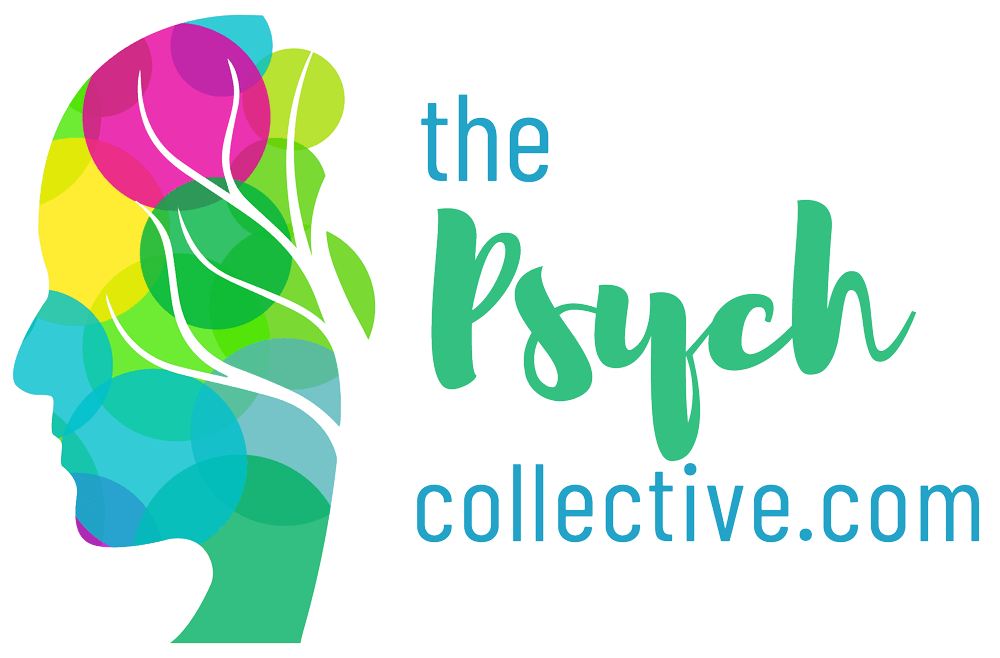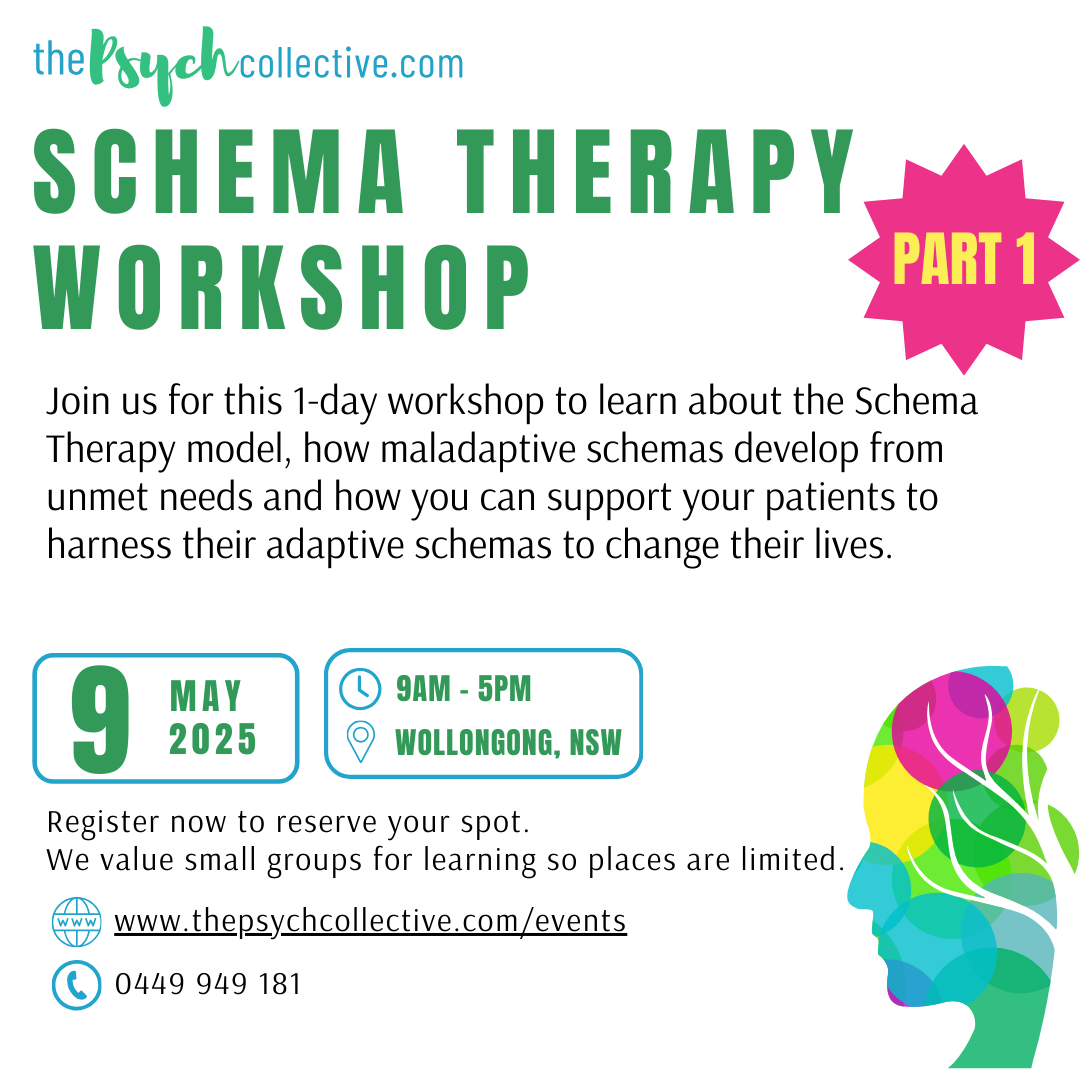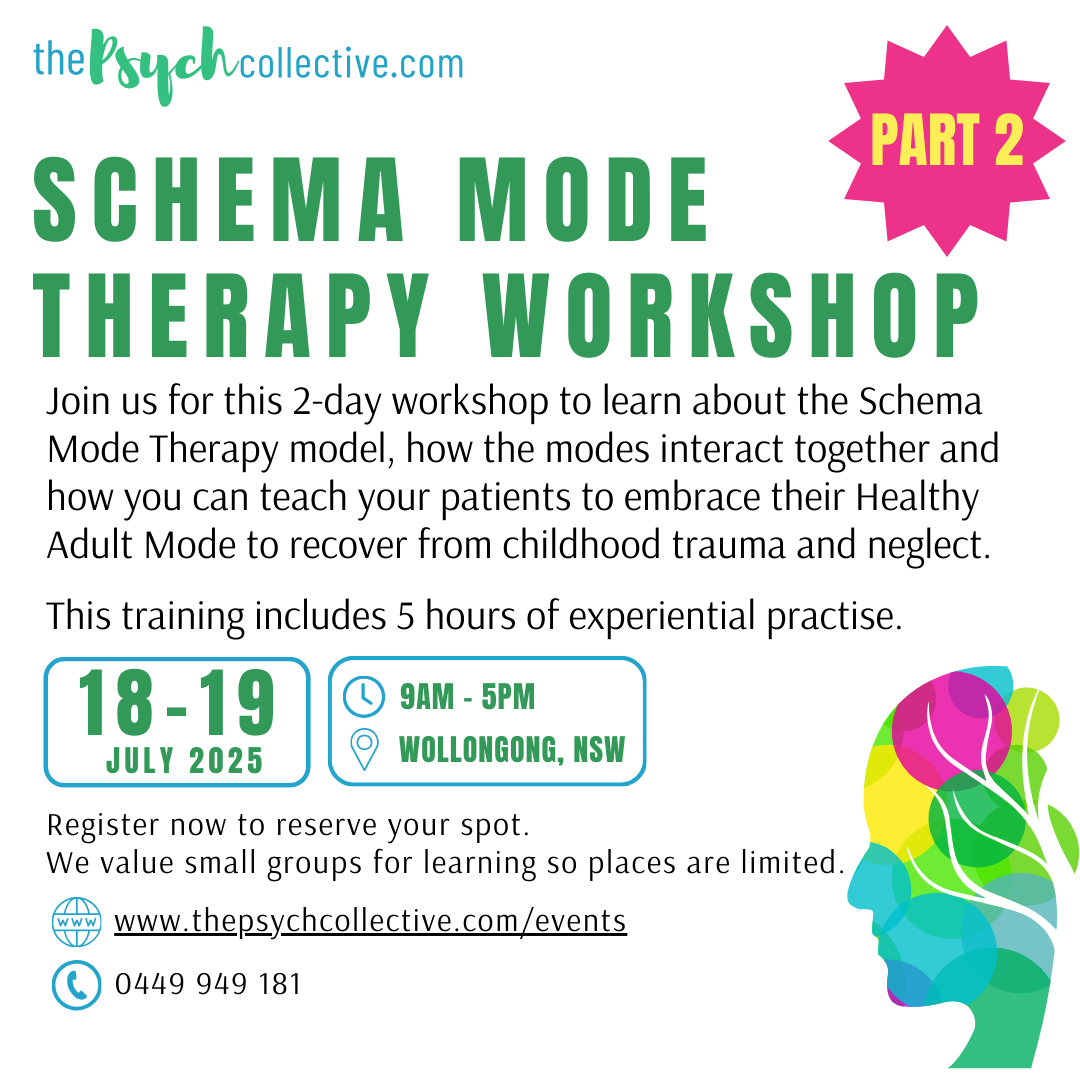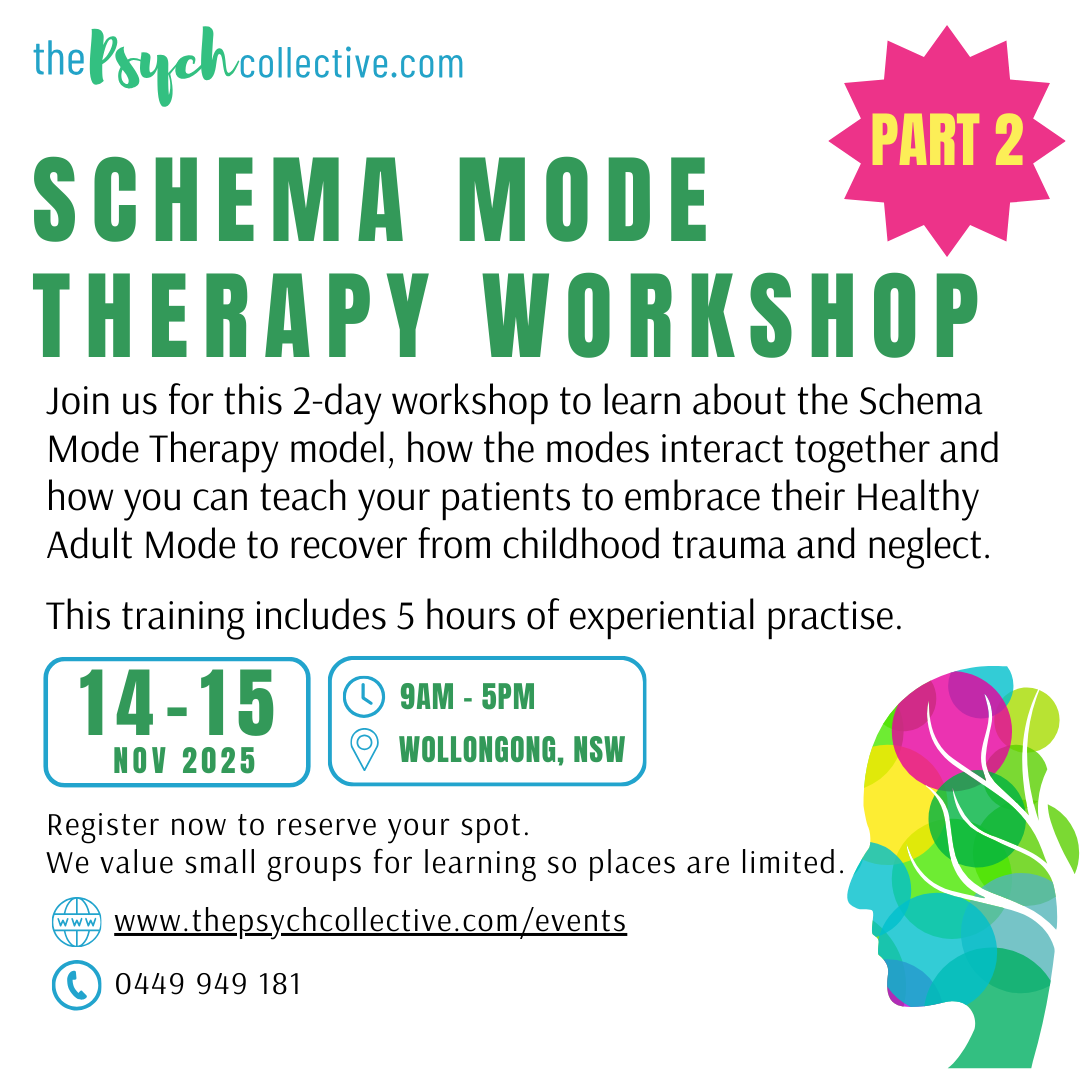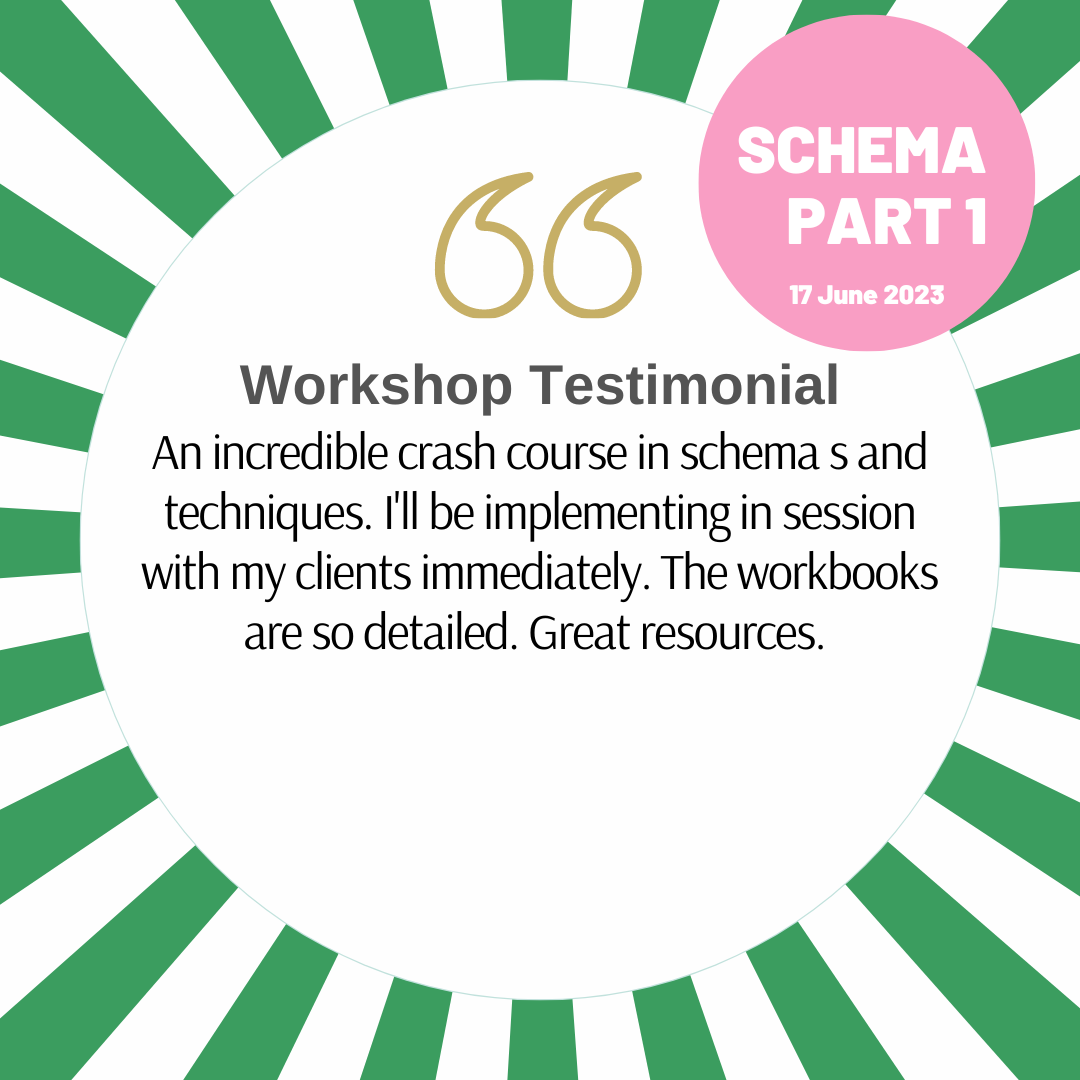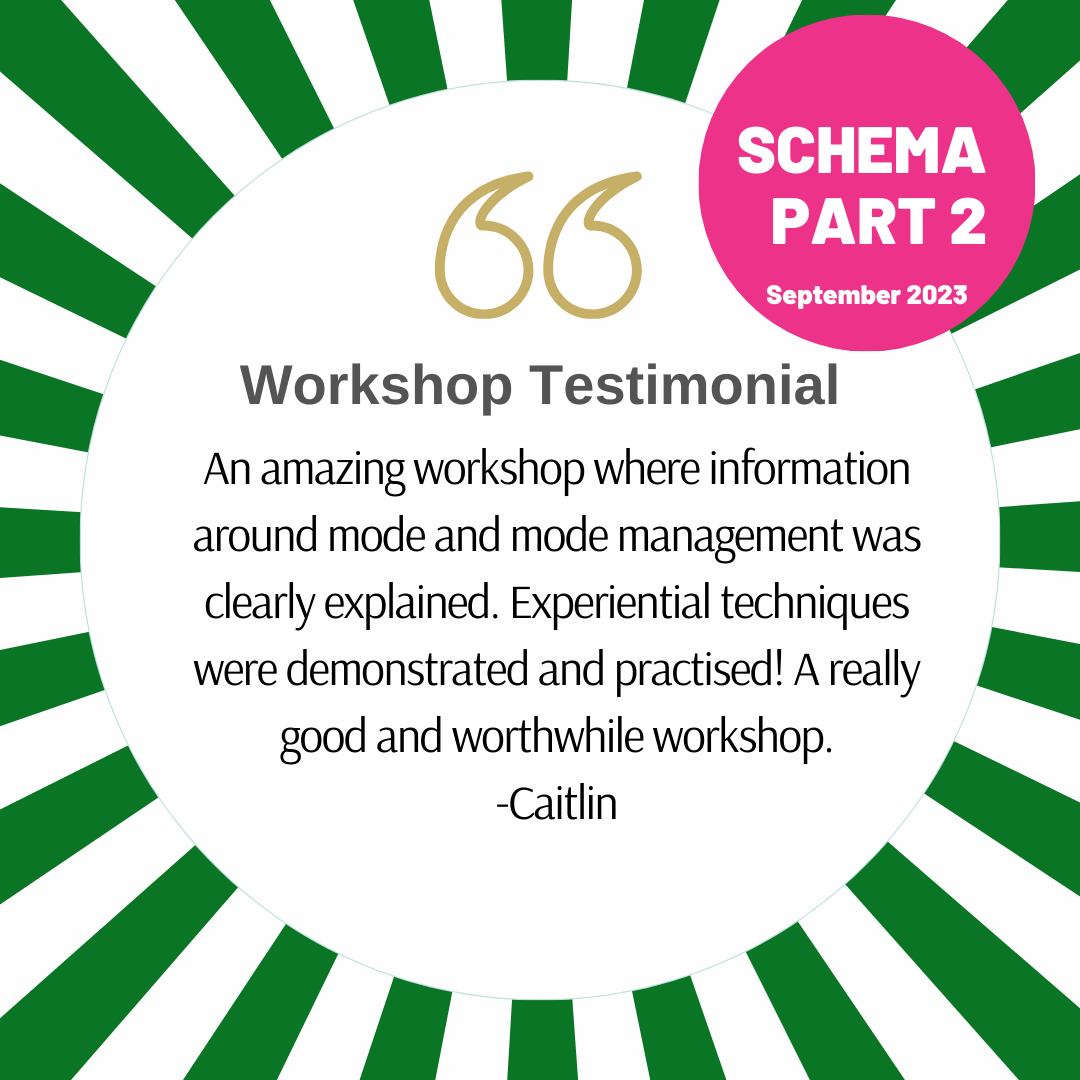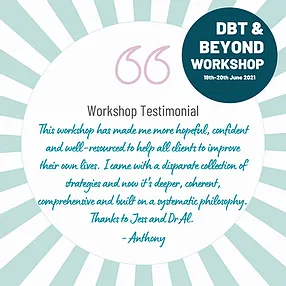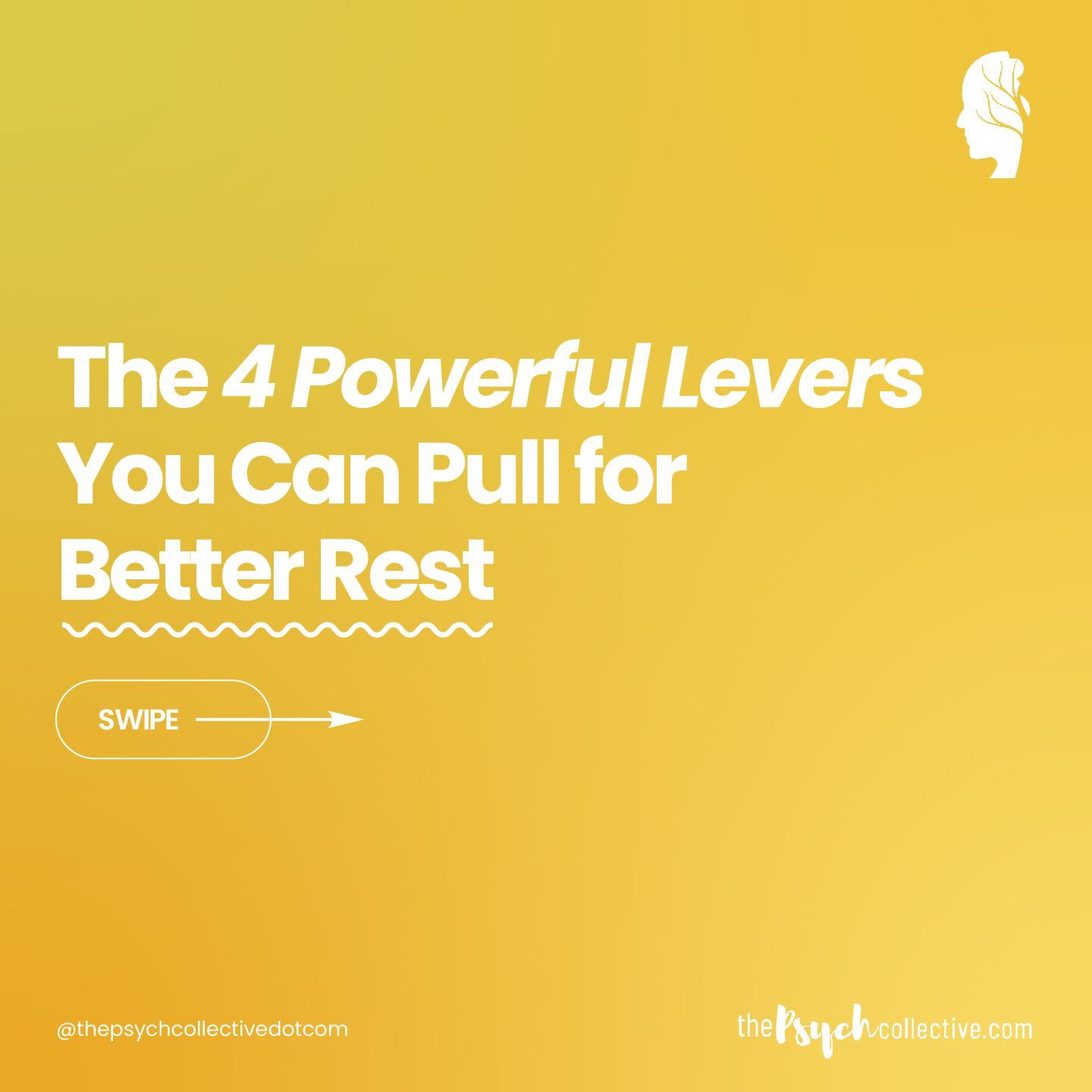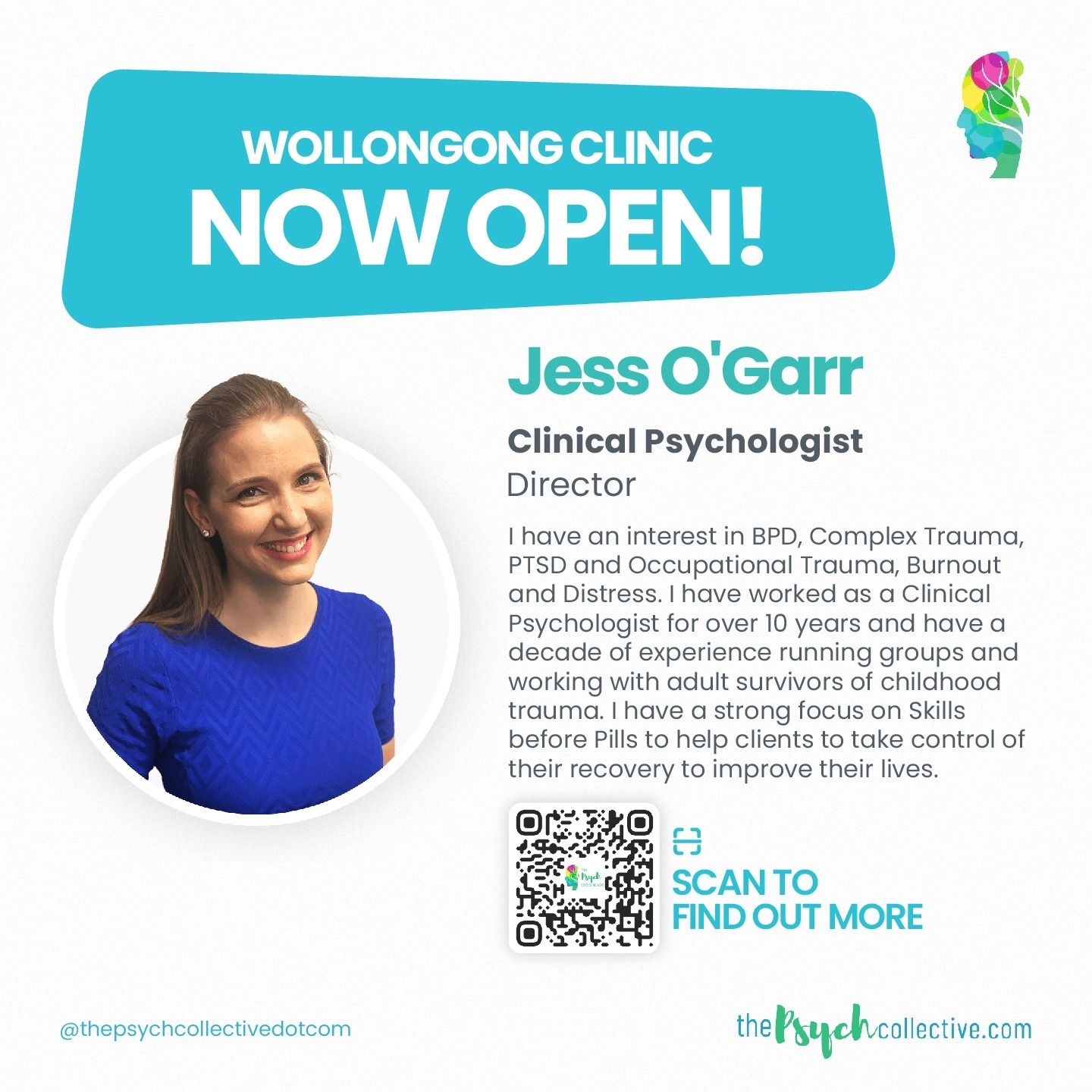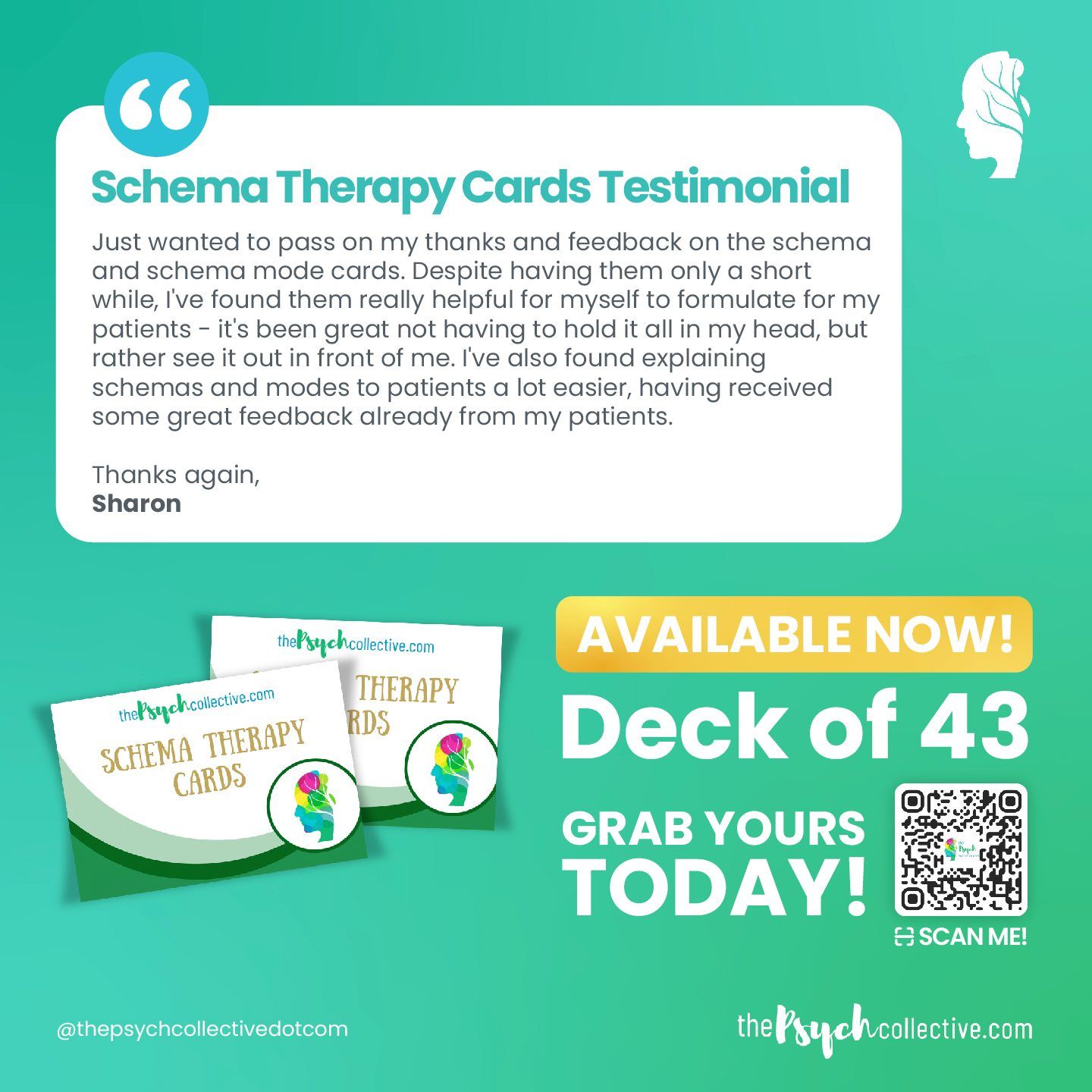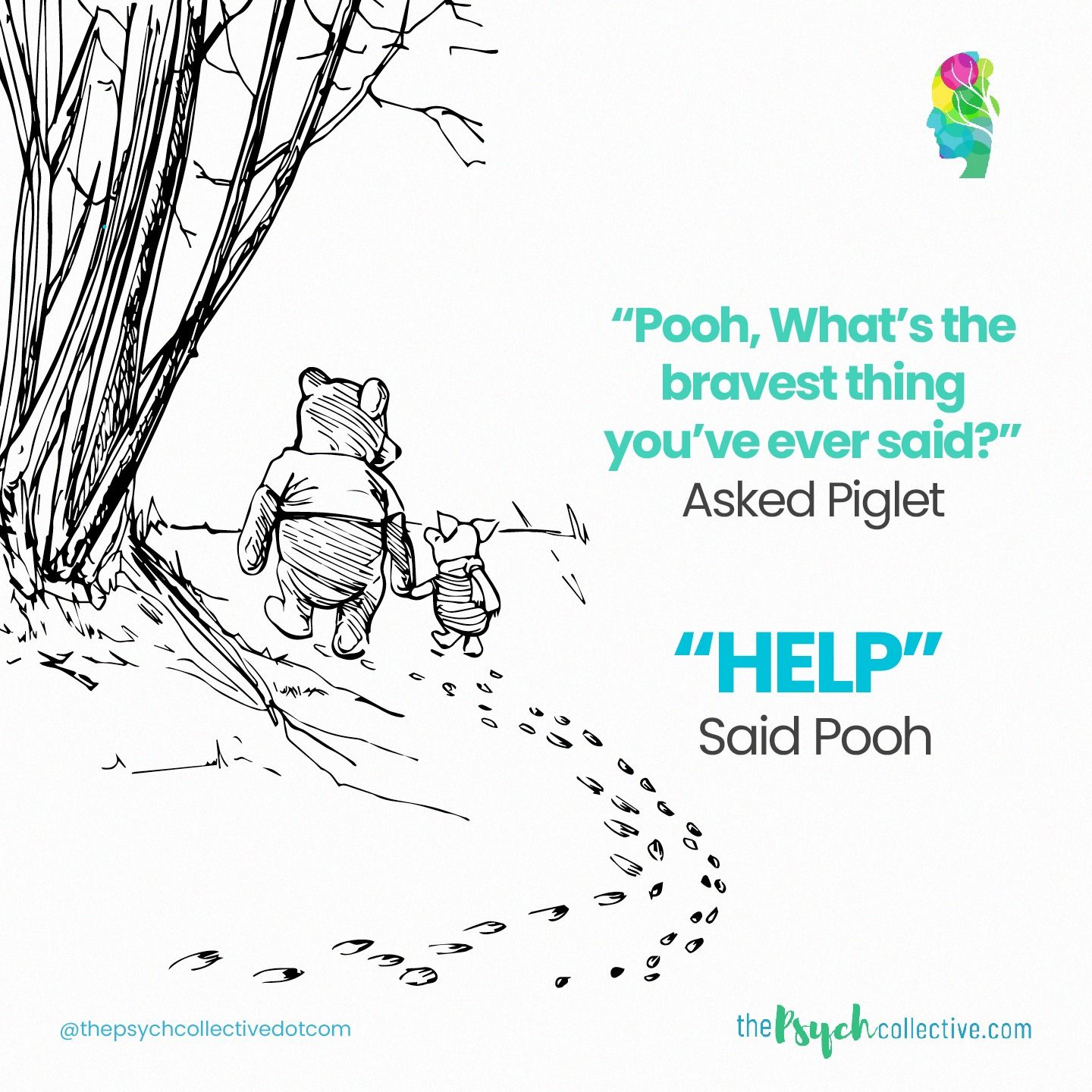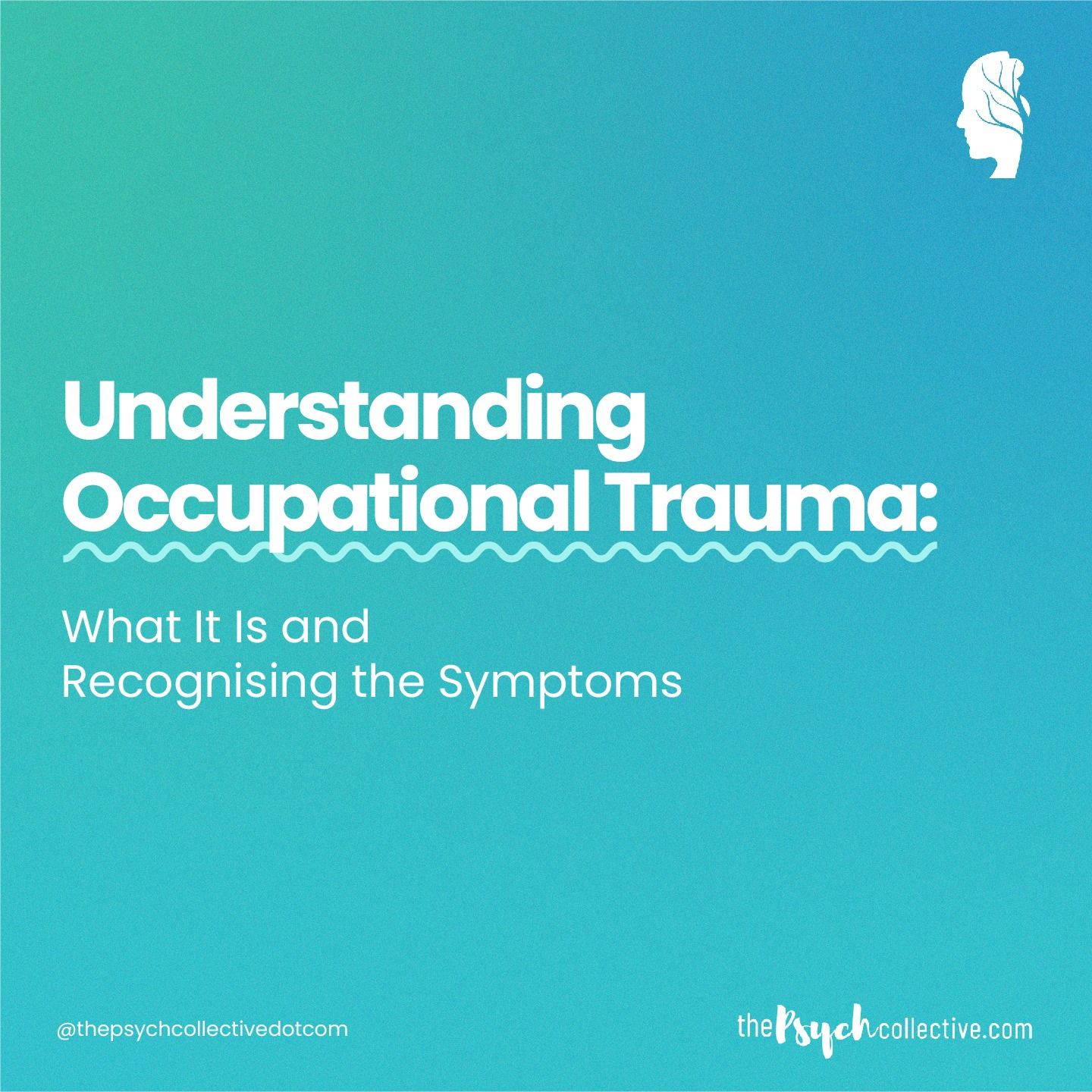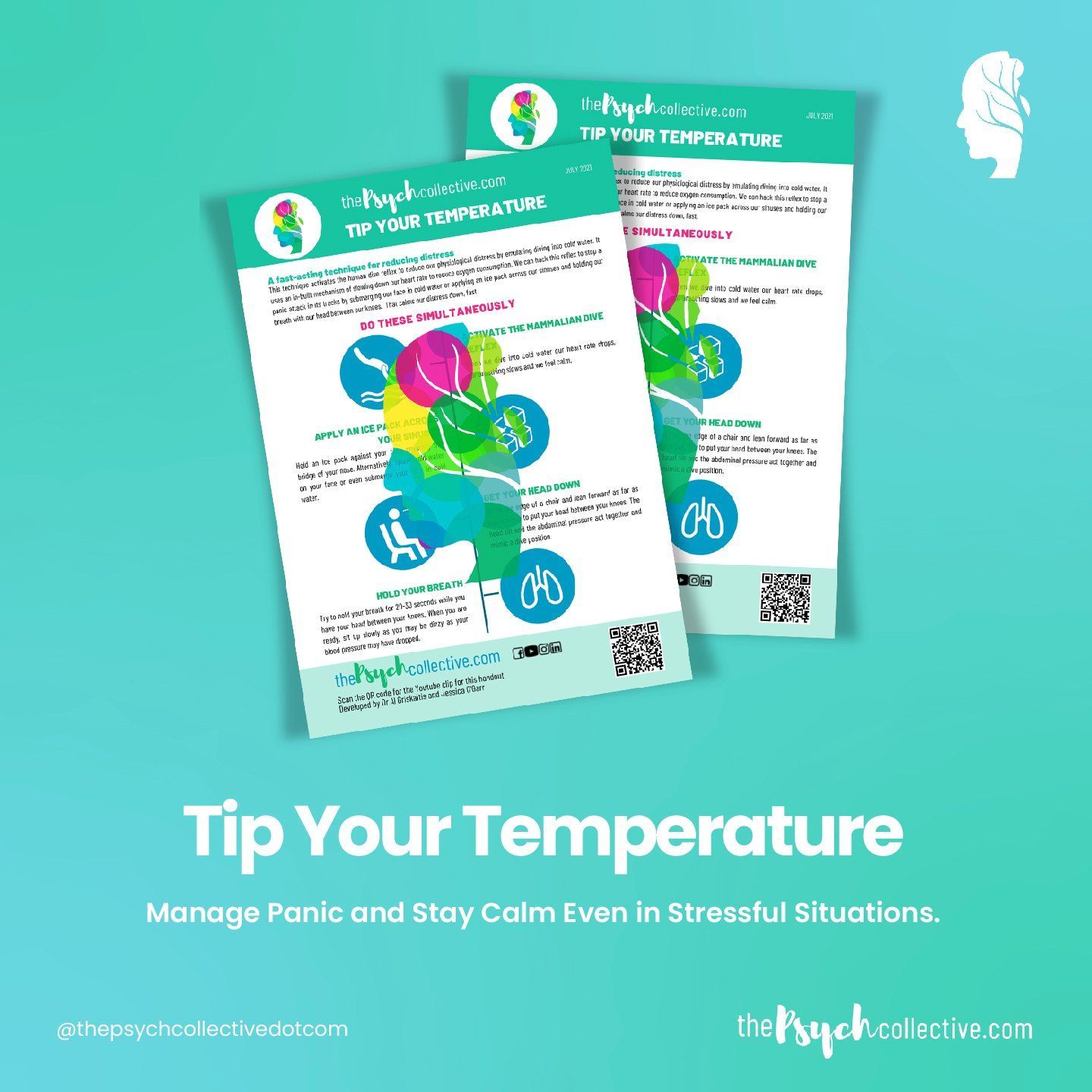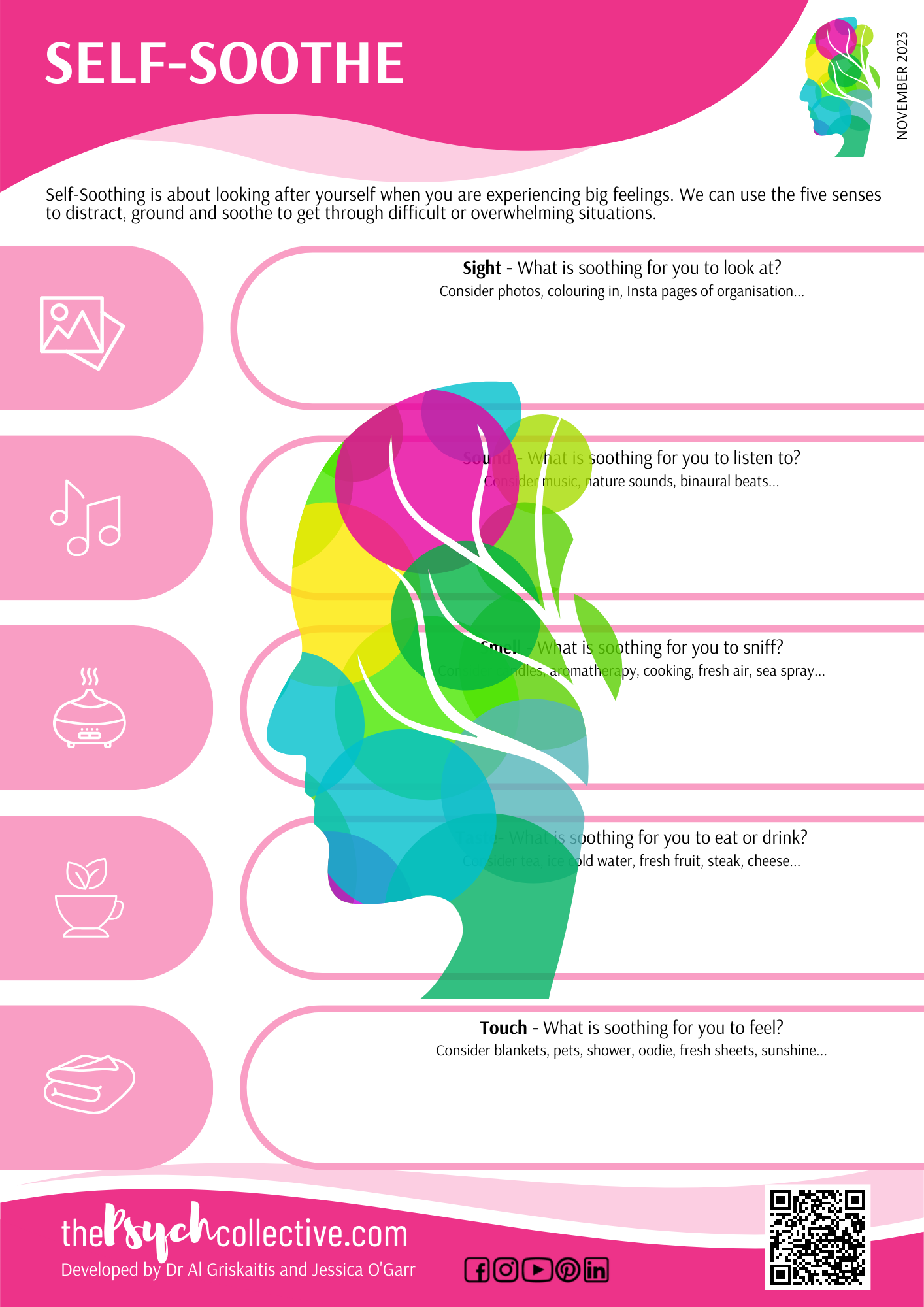Clinic Address: Unit 3, 36-42 Auburn St, Wollongong NSW | Monday to Friday by Appointment Only
Clinic Address: Unit 3, 36-42 Auburn St, Wollongong NSW | Monday to Friday by Appointment Only
Upcoming DBT & Schema Therapy Training Workshops
Please see below for our future DBT and schema therapy training events. If you are unable to attend these dates and would like to join our waitlist for our next program, please email us at info@thepsychcollective.com
2025 Dates for Training
Schema Therapy Workshop Part 1
Friday, 9 May 2025 | 9 AM - 5 PM
OR
Friday, 5th Sept 2025 | 9 AM - 5 PM
What You Will Get
7 hours of CPD in a face-to-face format
(Not offered online or via zoom at this time)
All workshop materials will be provided in hard copy on the day of the training
Note: This training does not count towards accreditation with ISST.
Details
This full-day workshop offers an introduction to Schema Therapy plus additional resources for clinicians developed by ThePsychCollective.com.
Course Outline
This group schema therapy training workshop will answer the following questions:
• What are maladaptive schemas and how did they develop?
• What are core emotional needs and how do they relate to the formation of schemas (both adaptive and maladaptive).
• How and why are maladaptive schemas maintained?
• How do you plan a treatment approach for your client using a schema therapy framework?
• What are the cognitive, behavioural and experiential techniques used in schema therapy?
• How can you leverage adaptive schemas to assist your client to make positive changes?
• What therapeutic factors need to be considered when delivering this complex form of therapy?
Who Should Take This Course
This schema therapy training is for mental health clinicians and trainees only.
Taught By Certified Experts
This one-day schema therapy training workshop is presented by Jess O'Garr (Clinical Psychologist).
It is a face-to-face workshop hosted in Wollongong (NSW Australia).
Schema Therapy Workshop Part 2
Friday-Saturday, 18-19 July 2025 | 9 AM - 5 PM
OR
Friday-Saturday, 14-15 Nov 2025 | 9 AM - 5 PM
What You Will Get
14 hours of CPD in a face-to-face format
(Not offered online or via Zoom at this time)
Includes 5 hours of experiential practise
All workshop materials will be provided in hard copy on the day of the training
Note: This training does not count towards accreditation with ISST.
Details
This two-day workshop offers an introduction to Schema Mode Therapy PLUS additional resources for clinicians developed by ThePsychCollective.com.
Course Outline
This group schema therapy training workshop will answer the following questions:
• How are schema modes different from schemas?
• What are the four schema mode categories and how do they fit into the schema mode model?
• How do you plan a treatment pathway for your client using a schema mode approach?
• How do you use psychometrics to assess schemas and modes?
• What are the child modes and which techniques do you use to treat them?
• What are the coping modes and which techniques do you use to treat them?
• What are the parent modes and which techniques do you use to treat them?
• What are the healthy modes and which techniques do you use to enhance them?
• How do you conduct imagery rescripting, emotion bridges, mode interviews and dialogues with origins?
• What therapeutic factors do you need to consider when using schema mode therapy?
Who Should Take This Course?
This schema therapy training is for mental health clinicians and trainees only.
Taught By Certified Experts
This two-day schema therapy training workshop is presented by Jess O'Garr (Clinical Psychologist)
It is a face-to-face workshop hosted in Wollongong (NSW Australia).
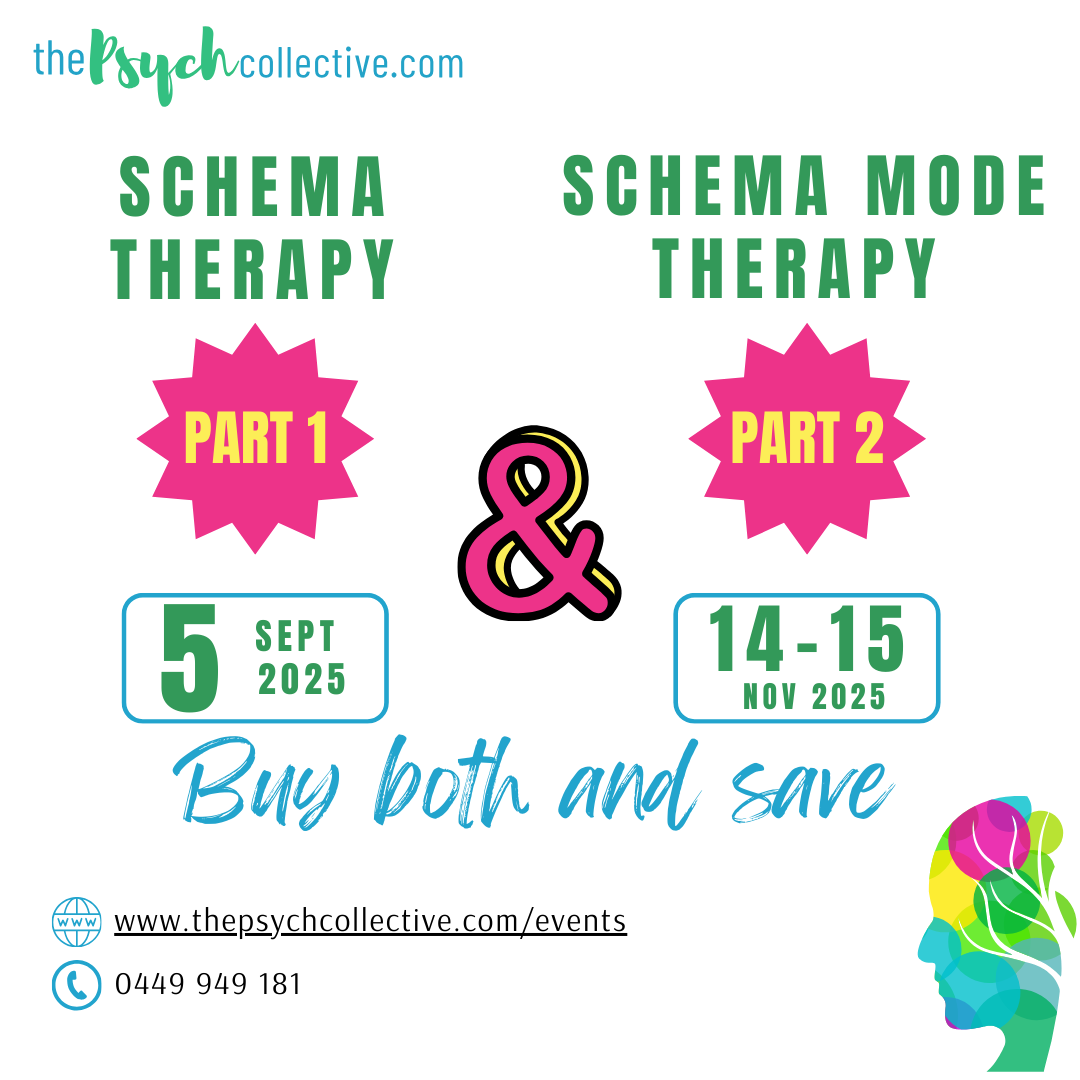
We are offering a discounted rate if you book both schema therapy training workshops together.
While Part One is not a strict pre-requisite for the next course, it is strongly recommended unless you have substantial knowledge of schema therapy.
Normal RRP $1200 +GST
Book together for
$999 +GST
DBT and Beyond Workshop
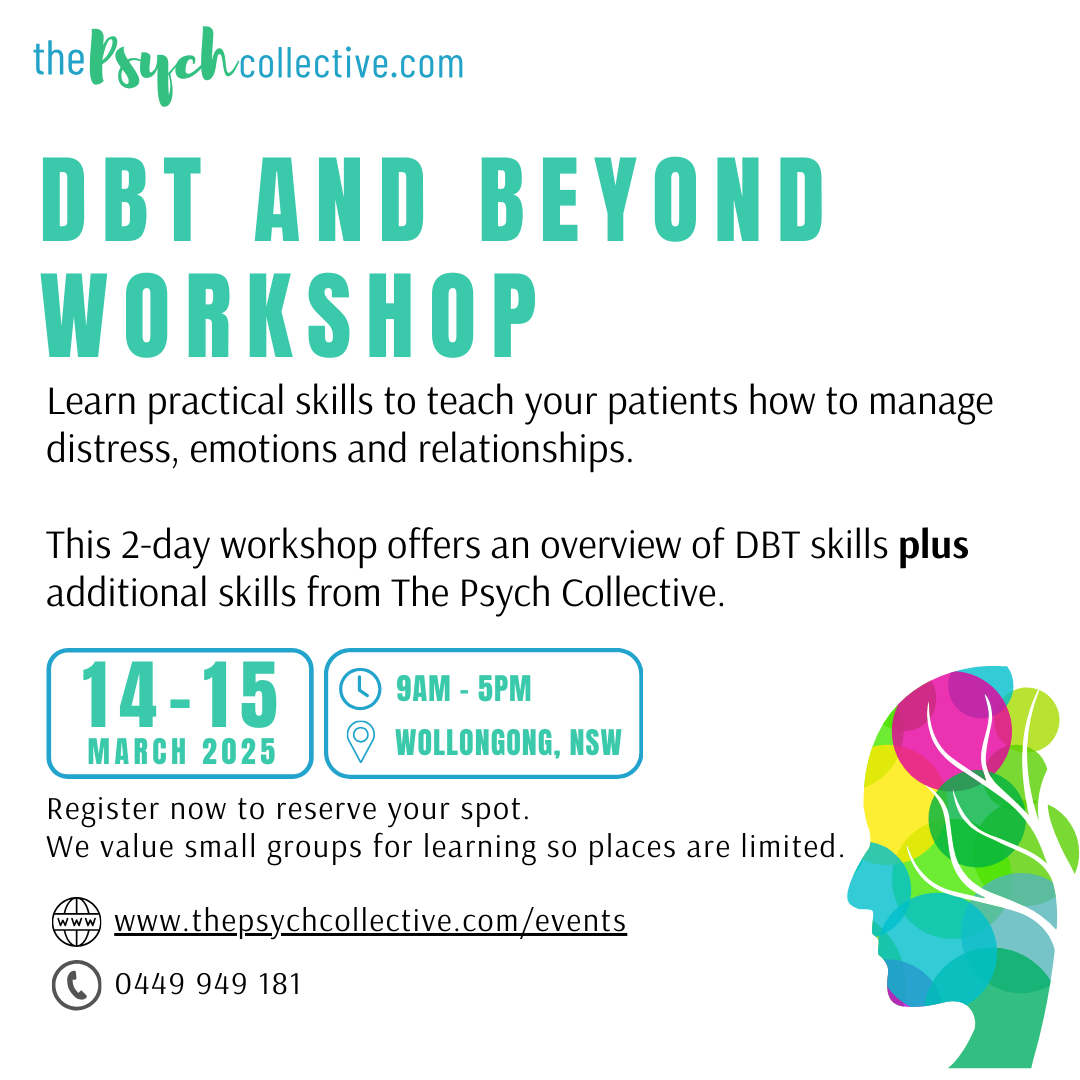
We call this workshop DBT and Beyond because it will teach the basics of Dialectical Behavioural Therapy from Marsha Linehan, and it will include additional resources developed by The Psych Collective.com to fill in the gaps that exist within the standard DBT treatment package.
14 hours of CPD in a face-to-face format
All workshop materials will be provided in hard copy on the day of the training
What You Will Get
It will offer 14 hours of CPD in a face-to-face format. (Not offered online or via zoom at this time)
All workshop materials will be provided in hard copy on the day of the training.
Course Outline
This workshop will answer the following questions:
• Who is DBT suitable for and how do these skills target the symptoms of Borderline Personality Disorder?
• How does sensitivity, neuroticism and invalidation relate to difficulties regulating distress?
• What are dialectics and how do they relate to different skills?
• What is the function of mindfulness as a tool for managing negative emotions?
• How does understanding the cycle of distress assist clients to tolerate their distress more effectively?
• How can you hack biological responses to stop panic quickly?
• What is the function of emotions and how does emotion regulation differ from distress tolerance?
• Which skills need to be used to improve relationships and prevent regrettable actions?
• Which techniques can be used to monitor change and improvement?
• What therapeutic factors do you need to consider when working with patients with personality disorder, complex trauma or distress?
Who Should Take This Course
This training is for mental health clinicians and trainees only.
Taught by Certified Experts
This two-day workshop is taught by Jess O'Garr (Clinical Psychologist) and Dr Al Griskaitis (Consultant Psychiatrist).
It is a face-to-face workshop hosted in Wollongong (NSW Australia).
Frequently Asked Questions
-
What is schema therapy training?
Typically facilitated by an advanced schema therapist, schema therapy training equips mental health professionals with the skills to identify and address deep-seated patterns of thinking, feeling, and behaving known as schemas. These patterns often develop in childhood and can cause substantial distress in adulthood. Through schema therapy training, practitioners learn to practice schema therapy effectively so they can help clients recognise and modify these maladaptive schemas.
-
What are the 5 needs in schema therapy?
In schema therapy, there are five core childhood needs necessary for healthy emotional development:
- The Need for Secure Attachment
- The Need for Autonomy
- The Need for Boundaries
- The Need for Freedom to Express
- The Need for Play
To learn more about this topic, read our blog on the List of Core Emotional Needs.
-
What is the difference between CBT and schema therapy?
Cognitive Behavioural Therapy (CBT) focuses on identifying and changing negative thought patterns and behaviours. In contrast, schema therapy delves deeper into the root causes of these patterns, exploring childhood experiences and long-standing beliefs. While Cognitive Behaviour Therapy is typically short-term and symptom-focused, schema therapy is more comprehensive and involves attempting to change a person's existing schemas so that they are no longer a hindrance.
At The Psych Collective, while we don't have a training program for CBT, we do have one for Dialectical Behaviour Therapy (DBT). DBT is an evidence-based treatment designed to help individuals manage intense emotions, particularly those associated with borderline personality disorder. It combines cognitive-behavioural techniques with mindfulness strategies, making it more comprehensive than CBT. Unlike CBT, which primarily focuses on altering thought patterns, DBT emphasises emotional regulation and interpersonal effectiveness. This approach is often considered superior to CBT for clients who struggle with chronic emotional dysregulation.
-
How long does it take to do schema therapy?
The duration of schema therapy varies significantly depending on the degree of the issues being addressed. It can typically take several months to a few years. Regular sessions over this period allow for gradual exploration and modification of deeply ingrained schemas.
-
Who should do schema therapy?
Schema therapy is particularly beneficial for individuals with long-standing emotional and relational difficulties, often rooted in early life experiences. It is recommended for those who have not found sufficient relief through other therapeutic approaches, such as CBT, or for individuals dealing with complex issues like personality disorders, anxiety disorders, or chronic depression.
It is our aim to offer actionable resources and teach real skills to help people make meaningful change in managing mental health issues, especially for those who can’t access other help.
